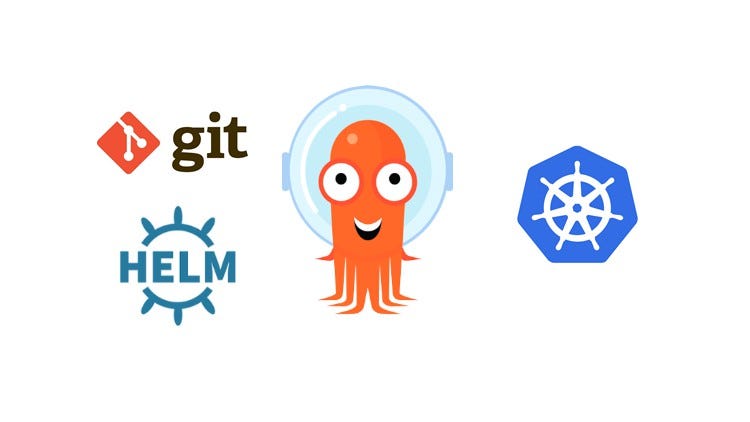🚀 GitLab Deployments Unleashed
-- GitLab, ArgoCD & K8s - local deployments made !easy entertaining!

Intro
Setting up a local Kubernetes environment for deploying applications can be challenging, but the process becomes simpler with GitLab, ArgoCD and K3d.
Together this tools form a seamless and powerful ecosystem that allows to build, test and deploy apps on K8s with minimal effort. By integrating GitLab, ArgoCD and K8s with K3d and Ingress, we can automate the application's lifecycle from development to production on a local machine, which not only speeds up the workflow but also helps catching potential issues early before going live.
Desired State
We'll set up step by step an environment of deploying K8s using ArgoCD, and access apps through a custom domain with Ingress, all running locally on our machine using K3d.
Implementation
① Defining in app.yaml our application using ArgoCD, specifying the repository and namespace where the app will be deployed.
apiVersion: argoproj.io/v1alpha1
kind: Application
metadata:
name: my-app
namespace: argocd
spec:
project: default
source:
repoURL: 'http://gitlab.com/mrz3ln/dev'
targetRevision: main
path: ./
destination:
server: 'https://kubernetes.default.svc'
namespace: dev
syncPolicy:
automated:
prune: true
selfHeal: true
② Defining in deployment.yaml file the way our app runs in Kubernetes, specifying the number of replicas, container image, and resource settings.
apiVersion: apps/v1
kind: Deployment
metadata:
name: my-app
spec:
replicas: 3
selector:
matchLabels:
app: my-app
template:
metadata:
labels:
app: my-app
spec:
containers:
- name: my-app
image: spamerr/app-1:latest
ports:
- containerPort: 8080
---
apiVersion: v1
kind: Service
metadata:
name: app-service
spec:
selector:
app: my-app
ports:
- protocol: TCP
port: 8080
targetPort: 8080
type: LoadBalancer
③ Customizing in gitlab-values.yaml the installation of GitLab with helm on K8s including key settings and resource configurations.
global:
externalUrl: "http://gitlab.local"
ingress:
configureCertmanager: false
class: "nginx"
hosts:
domain: "gitlab.local"
https: false
shell:
port: 32022
certmanager:
install: false
nginx-ingress:
enabled: false
prometheus:
install: false
gitlab-runner:
install: false
gitlab:
webservice:
minReplicas: 1
maxReplicas: 1
sidekiq:
minReplicas: 1
maxReplicas: 1
gitlab-shell:
minReplicas: 1
maxReplicas: 1
service:
type: NodePort
nodePort: 32022
registry:
hpa:
minReplicas: 1
maxReplicas: 1
④ Automating with setup.sh the installation of GitLab using Helm with custom values in the gitlab-values.yaml file, and setup it on the local K8s environment, as well as installing K3d and creating namespaces in the cluster, and automatically applying the deployment.yaml
#!/bin/bash
set -e
helm repo add gitlab https://charts.gitlab.io/
helm repo update
sudo k3d cluster create dev
sudo kubectl create namespace gitlab
sudo kubectl create namespace argocd
sudo kubectl create namespace dev
sudo helm upgrade gitlab gitlab/gitlab --namespace gitlab -f ./confs/gitlab-values.yaml
sudo kubectl apply -n dev -f ./confs/deployment.yaml
By the end of this steps of configuration, we'll have a fully automated functional local GitLab-based CI/CD pipeline that automates deployment to Kubernetes, allowing testing, iterating and managing applications just like in a production environment, but all on our local machine.